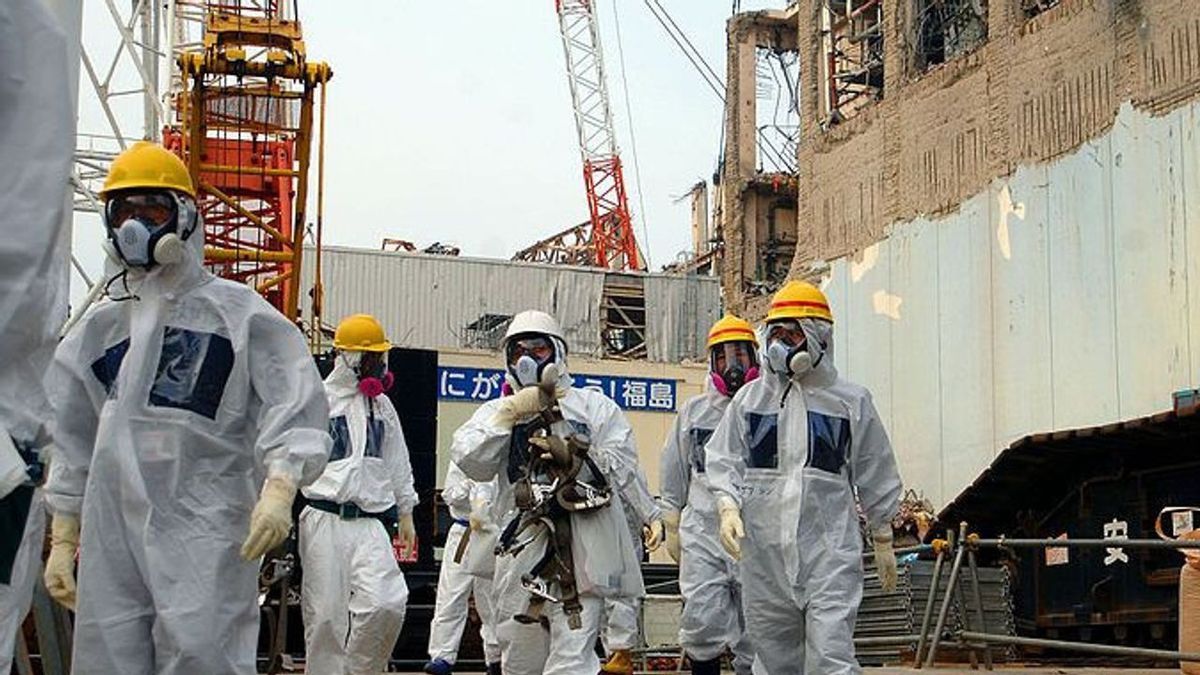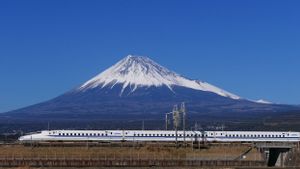YOGYAKARTA The disposal of radiocative waste water by the Japanese Government to the Sea has resulted in the cessation of a number of sea food import countries from the country. This step was taken by several countries even though the Japanese claim that the disposal of processed wastewater nuclil PLTN Fukushima was carried out according to international safety standards. Then, which countries stop importing Japanese seafood?
One country that has stopped importing seafood from Japan is China. In addition, there are several other countries that have made similar decisions. The following is a list of countries that choose to stop importing seafood from Japanese countries.
1. China
The Chinese government has criticized the Japanese government's decision to dispose of nuclear wastewater into the sea. According to Kyodo News, after Japan's policy of nuclear wastewater, China immediately banned all Japanese aquatic products.
China's customs authority itself said it was concerned about the risk of radiation contamination originating from wastewater, causing them to limit imports of Japanese food. This is done to protect the public.
Not only that, the Ministry of Ecology and China's Environment also promised to track and evaluate the results of releasing Japanese wastewater in the sea which is China's territory.
2. Hong Kong
Not only did the Hong Kong government stop importing Japanese aquatic products, but the Hong Kong government also formed a special team to monitor and supervise Japanese seafood products. The ban itself will be carried out starting Thursday, August 24, 2023 and applies to frozen, dry seafood and other types of food. However, Hong Kong still allows imports of seafood from 13 other Japanese regions.
The Hong Kong government will tighten seafood products imported from Japan and publish the results of daily radiation samples, so that the public can find out.
3. South Korea
South Korean Prime Minister Han Duck Soo has banned imports of marine and food products from Japan, especially Fukushima. The people of South Korea themselves also oppose the wastewater disposal activity.
4. Malaysia
The Malaysian government has also imposed a ban on imports of marine products from Japan in anticipation of radiation hazards. Special Advisor to the Malaysian Ministry of Health, Kelvin Yii said that the Government will continue to ensure food safety for their communities. In addition, they will also collect food samples to be investigated to ensure that the restrictions obtained are in accordance with the food regulations in force in their country.
5. Thailand
Quoted from the Global Times website, Thailand's Food and Drug Administration confirmed that the country plans to withdraw Japanese food products and suspend imports, Thai media, PPTV reported. The Thai government will also tighten controls and strengthen testing for imports of aquatic products from Japan.
6. Russia
The Russian quarantine agency has tightened control of the quality of seafood from Japan. The Global Times said, through a news release last Thursday, Federal Services for Russia's Animal Control and Phytosanitation stated that Russia has concerns such as many other countries regarding Japan's nuclear wastewater disposal and its impact on food security. However, the Russian government will conduct an investigation first.
If excess radioactive material is detected, restrictive measures will be taken in connection with supplies of these goods from Japan, the Russian agency said.
That's information related to countries that stop importing Japanese seafood. Visit VOI.ID to get other interesting information.
The English, Chinese, Japanese, Arabic, and French versions are automatically generated by the AI. So there may still be inaccuracies in translating, please always see Indonesian as our main language. (system supported by DigitalSiber.id)













